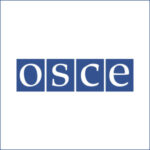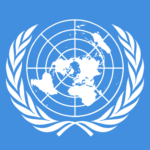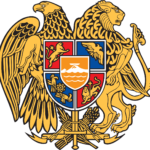OSCE MINSK GROUP
OSCE Minsk Group Statements - Moscow/Paris/Washington
February 26, 2017
According to reports from the Ministries of Defence of Armenia and Azerbaijan, as well as other sources, in the early morning of 25 February there was a serious breach of ceasefire on the Line of Contact (LOC), resulting in casualties. Several bodies remain in no-man’s land. The Sides accuse each other of an incursion attempt.
OSCE Minsk Group Statements - Munich Statement
February 17, 2017
The Co-Chairs are aware that a so-called constitutional referendum is scheduled to take place in Nagorno-Karabakh on February 20, 2017. Although the Co-Chairs note that the de-facto Nagorno-Karabakh authorities view the use of such a procedure as an effort to organize the public life of their population, they underscore again that no countries, including Armenia and Azerbaijan, recognize Nagorno-Karabakh as an independent and sovereign state. Accordingly, the Co-Chairs do not accept the results of the referendum on February 20 as affecting the legal status of Nagorno-Karabakh.
OSCE Minsk Group Statements - Vienna Statement
April 5, 2016
Strongly condemned the outbreak of unprecedented violence along the Line of Contact; extended condolences to all affected families and urged the sides to cease using force immediately. Stated again that there is no military solution to the conflict.
OSCE Minsk Group Statements - Vienna Press Release
January 22, 2016
Reminded PACE, and other regional and international organizations, that the Minsk Group remains the only accepted format for negotiations. We appreciate the interest paid by PACE members, but urge that steps not be taken which could undermine the Minsk Group’s mandate.
OSCE Minsk Group Statements - New York Statement
September 26, 2015
The Co-Chairs called for the Presidents of Armenia and Azerbaijan to accept an OSCE mechanism to investigate ceasefire violations. Without such a mechanism, the sides will continue to blame each other for initiating deadly attacks on the Line of Contact and Armenia-Azerbaijan border.
OSCE Minsk Group Statements - Krakow Statement
January 27, 2015
expressed concern about incursions across the LoC and the Armenia-Azerbaijan border, resulting in casualties. The rise in violence that began last year must stop for confidence to be restored and progress to be made in the peace process. Called on Azerbaijan to observe its commitments to a peaceful resolution of the conflict. Call on Armenia to take all measures to reduce tensions.
Joint Declarations/Statements by Presidents and Foreign Ministers - Basel Joint Statement
December 4, 2014
By the Foreign Minister of Russia, Secretary of State of the US and the State Secretary for the European Affairs of France: the sides regret the upsurge in violence in the past year along the Line of Contact and the Armenia-Azerbaijan border. The November 12 downing of a military helicopter along the Line of Contact was an avoidable tragedy that underscored the importance of measures by the sides to reduce tensions, restore trust, and avoid future incidents.
Joint Declarations/Statements by Presidents and Foreign Ministers - Enniskillen Joint Statement
June 18, 2013
By the Presidents of the US, Russia and France: the leaders continue to firmly believe that the elements outlined in the statements of our countries over the last four years must be the foundation of any fair and lasting settlement to the Nagorno-Karabakh conflict. These elements should be seen as an integrated whole, as any attempt to select some elements over others would make it impossible to achieve a balanced solution.
Joint Declarations/Statements by Presidents and Foreign Ministers - Dublin Statement
December 6, 2012
By the Foreign Minister of Russia, Secretary of State of the US and the Minister Delegate for European Affairs of France: the sides regret that the expectations of more rapid progress in the peace process, which were raised by the Joint Statement of the Presidents of Armenia and Azerbaijan, with the President of the Russia at Sochi on January 23, 2012, were not met. Instead, the parties have too often sought one-sided advantage in the negotiation process, rather than seeking to find agreement, based upon mutual understanding.
OSCE Minsk Group Statements - Paris Statement
September 3, 2012
Co-Chairs expressed concern over the pardon of Ramil Safarov in Azerbaijan.
OSCE Minsk Group Statements - Yerevan Statement
July 13, 2012
Regarding reports of the planned opening of an airport in Nagorno-Karabakh, the Co-Chairs received renewed assurances from the sides that they will reject any threat or use of force against civil aircraft, pursue the matter through diplomatic steps, and refrain from politicizing the issue. The Co-Chairs reaffirmed that operation of this airport cannot be used to support any claim of a change in the status of Nagorno-Karabakh, and urged the sides to act in accordance with international law and consistent with current practice for flights over their territory.
Joint Declarations/Statements by Presidents and Foreign Ministers - Los Cabos Joint Statement
June 19, 2012
By the Presidents of France, Russia and the US: call upon the leaders of Armenia and Azerbaijan to fulfill the commitment in their January 23, 2012 joint statement at Sochi to “accelerate” reaching agreement on the Basic Principles for a Settlement of the Nagorno-Karabakh Conflict. As evidence of their political will, they should refrain from maximalist positions in the negotiations, respect the 1994 ceasefire agreement, and abstain from hostile rhetoric that increases tension.
Joint Declarations/Statements by Presidents and Foreign Ministers - Sochi Joint Declaration
January 23, 2012
By the Presidents of Armenia, Russia and Azerbaijan: the Presidents of the Republic of Armenia and Republic of Azerbaijan expressed readiness to expedite the process of reaching understanding with regard to the Basic Principles, taking into account all the works conducted so far.
Joint Declarations/Statements by Presidents and Foreign Ministers - Deauville Joint Statement
May 26, 2011
By the Presidents of France, Russia and the US: They reiterate that only a negotiated settlement can lead to peace, stability, and reconciliation, opening opportunities for regional development and cooperation. The use of force created the current situation of confrontation and instability. Its use again would only bring more suffering and devastation, and would be condemned by the international community and they strongly urge the leaders of the sides to prepare their populations for peace, not war.
Joint Declarations/Statements by Presidents and Foreign Ministers - Sochi Joint Declaration
March 5, 2011
By the Presidents of Armenia, Azerbaijan and Russia: to conclude in the shortest possible period of time the exchange of the prisoners of war and stressed the importance of their regular meetings on the resolution of the Nagorno Karabakh conflict.
Joint Declarations/Statements by Presidents and Foreign Ministers - Astana Joint Statement
December 1, 2010
the President of Russia, the Prime Minister of France, the Secretary of State of the United States, the Presidents of Azerbaijan and Armenia: The Presidents of Armenia and Azerbaijan reaffirmed their commitment to seek a final settlement of the Nagorno-Karabakh conflict, based upon: the principles and norms of international law; the United Nations Charter; the Helsinki Final Act; as well as the statements of Presidents of Russia, France and the US, at L’Aquila and at Muskoka.
Joint Declarations/Statements by Presidents and Foreign Ministers - Astrakhan Joint Declaration
October 27, 2010
By Presidents of Azerbaijan, Armenia and Russia: The Armenian and Azerbaijani presidents agreed that their first step would be an immediate exchange of prisoners of war and the return of the bodies of those killed. Medvedev noted that the general principles for settling the Nagorno-Karabakh problem could be drafted in time for the OSCE summit that will take place on December 1-2, 2010 in Astana.
Joint Declarations/Statements by Presidents and Foreign Ministers - Almaty Joint Statement
July 17, 2010
By the Foreign Ministers of Russia and France and Deputy Secretary of State of the US:stressed that the efforts made so far by the parties to the conflict have not been sufficient to overcome their differences. They deplored recent developments which have increased tension in the region, including the serious armed incident of June 18-19, 2010 and inflammatory public statements.
Joint Declarations/Statements by Presidents and Foreign Ministers - Muskoka Statement
June 26, 2010
By the Presidents of Russia, France and the US: reiterated the basic principles i.e. the return of the occupied territories surrounding Nagorno-Karabakh, interim status for Nagorno-Karabakh guaranteeing security and self-governance, a corridor linking Armenia to Nagorno-Karabakh; final status of Nagorno-Karabakh to be determined in the future by a legally-binding expression of will, the right of all internally-displaced persons and refugees to return, and international security guarantees, including a peacekeeping operation. Stated that the next step is to put together a lasting peace plan.
Joint Declarations/Statements by Presidents and Foreign Ministers - Athens Statement
December 1, 2009
By the Foreign Ministers of Russia and France and Deputy Secretary of State of the US: Urged the leaders of Armenia and Azerbaijan to finish the work on the Basic Principles and stressed that agreement on the Basic Principles would provide the framework for a comprehensive settlement to promote a future of peace, stability, and prosperity for the entire region.
Joint Declarations/Statements by Presidents and Foreign Ministers - L'Aquila Statement
July 10, 2009
By the Presidents of Russia, France and the US: instructing OSCE mediators to present to the Presidents of Armenia and Azerbaijan an updated version of the Madrid Document of November 2007, the Co-Chairs last articulation of the Basic Principles.
Joint Declarations/Statements by Presidents and Foreign Ministers - Helsinki Joint Declaration
December 4, 2008
By the Foreign Ministers and Deputy Minister of the OSCE Minsk Group’s Co-Chair countries – France, Russia, and the US: call on the parties to work with the Co-Chairs to finalize the Basic Principles in the coming months, and then begin drafting a comprehensive peace settlement as outlined by those agreed principles.
Joint Declarations/Statements by Presidents and Foreign Ministers - Mayendorf (Moscow) Declaration
November 2, 2008
By Presidents of Azerbaijan, Armenia and Russia: continue their mediation based on the outcome of the meeting between the parties in Madrid, and agree that peace settlement should be accompanied by legally binding guarantees for every aspect and stage of the settlement process.
OSCE Minsk Group Statements - Madrid Statement
November 29, 2007
Establishment of a set of Basic Principles for the peaceful settlement of the conflict is proposed.
OSCE Minsk Group Statements - Mandate of the Co-Chairmen
March 23, 1995
“OSCE established the co-chairmanship of the Conference on Nagorno Karabakh under the auspices of the OSCE (The Minsk Group).”
OSCE Minsk Group Statements - Budapest Document
December 5, 1994
“The participating States welcomed the confirmation by the parties to the conflict of the cease-fire agreed on 12 May 1994 through the mediation of the Russian Federation in co-operation with the CSCE Minsk Group. (Basically recognized Nagorno-Karabakh, a signatory of the ceasefire agreement, as a party to the conflict).”
Statement by the Prime Minister of the Republic of Armenia, the President of the Republic of Azerbaijan and the President of the Russian Federation
November 10, 2020
“We, Prime Minister of the Republic of Armenia Nikol Pashinyan, President of the Republic of Azerbaijan Ilham Aliyev, and President of the Russian Federation Vladimir Putin state the following…”
UN Security Council Resolution 884
November 12, 1993
Condemns the occupation of the Zangelan district and the city of Goradiz, attacks on civilians and bombardments of the territory of the Azerbaijani Republic; calls upon the Government of Armenia to use its influence to achieve compliance by the Armenians of the Nagorny Karabakh region of the Azerbaijani Republic.
UN Security Council Resolution 874
October 14, 1993
Concern that a continuation of the conflict in and around the Nagorny Karabakh region of the Azerbaijani Republic, and of the tensions between the Republic of Armenia and the Azerbaijani Republic, would endanger peace and security in the region and supports the monitoring mission developed by the CSCE.
UN Security Council Resolution 853
July 29, 1993
Concern over the seizure of the district of Agdam in the Azerbaijani Republic (not specified by whom), Urges the Government of the Republic of Armenia to continue to exert its influence to achieve compliance by the Armenians of the Nagorny-Karabakh region to comply with the resolutions.
UN Security Council Resolution 822
April 30, 1993
Expressed serious concern at the deterioration of the relations between the Republic of Armenia and the Republic of Azerbaijan, in particular, the latest invasion of the Kelbadjar district of the Republic of Azerbaijan by local Armenian forces.












